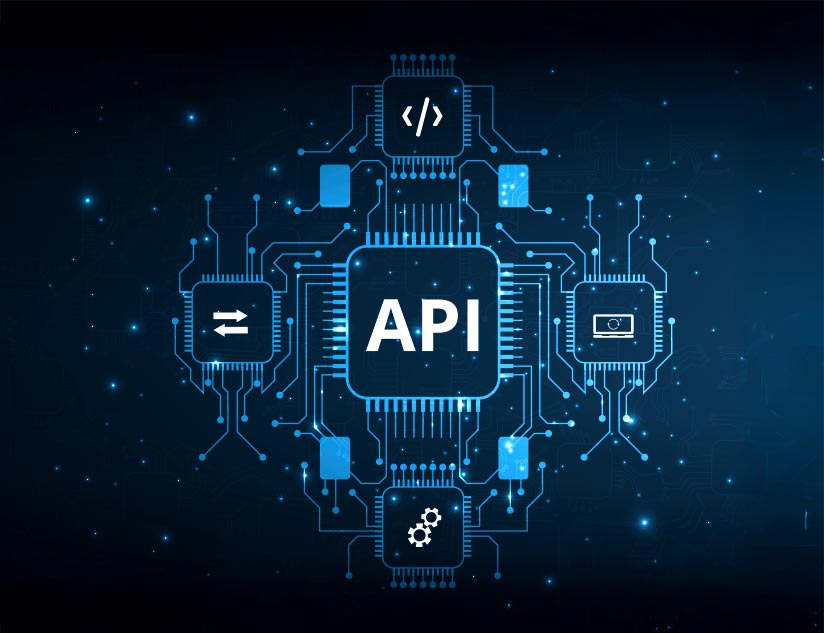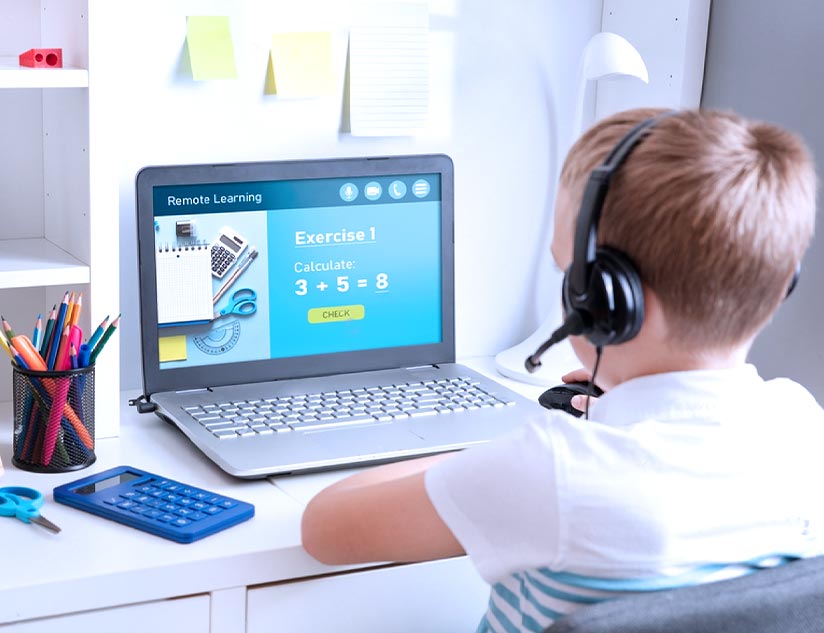Let’s look at the online assessments revolution with a little story. You, as a teacher, are assessing division capabilities for young learners with the help of a pizza or a bunch of grapes by asking the students to equally distribute them among their friends. Relatable, engaging, and memorable, right? But how many bunches of grapes and pizzas will you bring to the classroom? Not even one – why? All you need is an online learning platform armed with interactive technologies.
Gone are the days of learning division the hard way, and assessing it for all learners through static questions. A traditional 54 ÷ 9 failure can make a student appear to fail the test. With modern techniques, you gain insights into whether there is a lack of basic understanding or a gap in application. This serves the true purpose of education – learning progress. In addition, this method allows the learner to improve their skills while working on the problem. The example is just a small glimpse into how technology is revolutionizing learning and assessments .
The need for assessments beyond filling up the MCQ bubbles is fuelling the demand for evaluations that assess learning from a different lens. Educators need an alternative way to the traditional memorized answers to assess a student’s improvement. This is driving the demand for dynamic question formats that evaluate critical thinking, problem-solving, and application. The assessment revolution is expected to lead the online assessments market to expand at a CAGR of 9.1% between 2024 and 2030 to reach a value of $7.27 billion by the end of the period.
The big question is – how should educational publishers prepare to offer what the education market demands? Read on to learn why adapting to the assessment revolution is non-negotiable to stay relevant in the long run.
Limitations of Traditional Publishing Methods
Traditional assessments focus on factual recall and only assess students’ learning on the surface. The students know this too, which is why they lack the motivation to develop a deeper understanding of the subject.
The emphasis on scores rather than knowledge and skill acquisition fails to deliver the entire full spectrum of K12 learning . Essential skills, such as critical thinking, creativity, problem-solving, communication, and emotional intelligence, are neglected in standardized tests. A one-size-fits-all approach does not address the uniqueness of each student. This approach cannot meet the assessment needs of diverse learning styles, preferences, and paces.
Traditional publishing methods offer static, multiple-choice questions or descriptive ones. These do not encourage learners to regulate their thought processes and align them with the problem at hand. Two stringent score-based pass and fail categories cannot comprehensively reflect a learner’s progress. They translate assessments into a mere monologue of grades.
The lack of feedback denies the students the opportunity to learn from their mistakes and improve, a critical aspect of comprehensive education. Without timely intervention and learning support, the gap between fast and slow learners only widens. They also lack the insights to align the pedagogy and instruction formats to the evolving needs of learners.
Industry Challenges: Embracing the Digital Shift
Publishers transitioning to online assessments face several challenges. Integrating new technologies with existing workflows and learning management systems requires planning and careful integration. Data security remains a top concern, with ensuring student data privacy being paramount. Additionally, DEI initiatives demand that online learning platforms offer inclusive learning opportunities with assistive and adaptive technologies to cater to different learning abilities, styles, and needs.
Notably, the shift toward effective assessment tools may force the redesign or replacement of legacy technology stacks. Migration to cloud-based learning management systems can help publishers expand to newer markets. However, this will bring the complexities of compliance across diverse legislations.
Opportunities for Publishers in the Assessment Revolution
The assessment revolution is driving the transformation of digital publishing to empower educators with sophisticated assessment tools. These tools leverage cutting-edge technologies to realize the principles of well-rounded K12 learning and effective assessment. They help educators administer:
Interactive Learning Experiences
Higher engagement and active participation drive deeper learning. Refining summative and formative assessments with interactive tools significantly transforms assessment experiences. Digital publishers can leverage student-driven experiments, simulated real-world scenarios, and video assessments to offer interactive learning and assessment experiences. Gamification tools and leaderboards further boost dopamine during learning experiences, driving higher engagement and facilitating higher learning achievement, especially among K12 learners. Together, such experiences help in the development of social, intellectual, and spatio-temporal skills.
Personalized Learning Content
Online learning platforms equipped with machine learning and analytics allow educators to curate personalized learning and assessment experiences. These tools identify the strengths and weaknesses of students, along with their preferred modes of learning. This information is leveraged to guide digital publishing. Modularized content and assessments are delivered most suitably to keep students engaged, eliminate examination anxiety, and bolster academic achievement. Intelligent assessments tailor question types and difficulty levels to meet individual needs, learning goals, and improvement requirements. Further, instant feedback allows students to improve learning and teachers to intervene in time to minimize failure rate.
Data-Driven Content Creation
Learning and assessment data offers invaluable insights to guide future content creation. Learning gaps point to needed improvements in instructional mechanisms and resources to enhance the curriculum. It helps ensure that learning materials align with each student’s learning goals. This also fuels targeted digital publishing to offer personalized learning content and assessments. Educators can align learning outcomes and formative and summative assessment objectives to individual learning goals.
Collaboration is Key
Educators, digital publishers, and learning technologists must create effective comprehensive online assessments together . An online learning platform by itself is no longer sufficient to deliver educational success. Students need to be actively through formative and summative assessments , leveraging feedback loops and powerful technology.
Online learning platforms with dynamically personalizable assessments and learning are critical to delivering deeper and more fulfilling learning experiences. Additionally, these platforms require an inclusive design approach that helps make assessments effective and accessible for learners of varying abilities. Data security and student privacy are gaining significance in the increasingly digitized learning space. Therefore, edtechs must also leverage tools that facilitate compliance and, hence, state adoption. Speak to the experts at MagicBox to discover how a comprehensive digital learning platform, advanced content authoring tools, and innovative online assessments can help you future-proof your publishing business.















